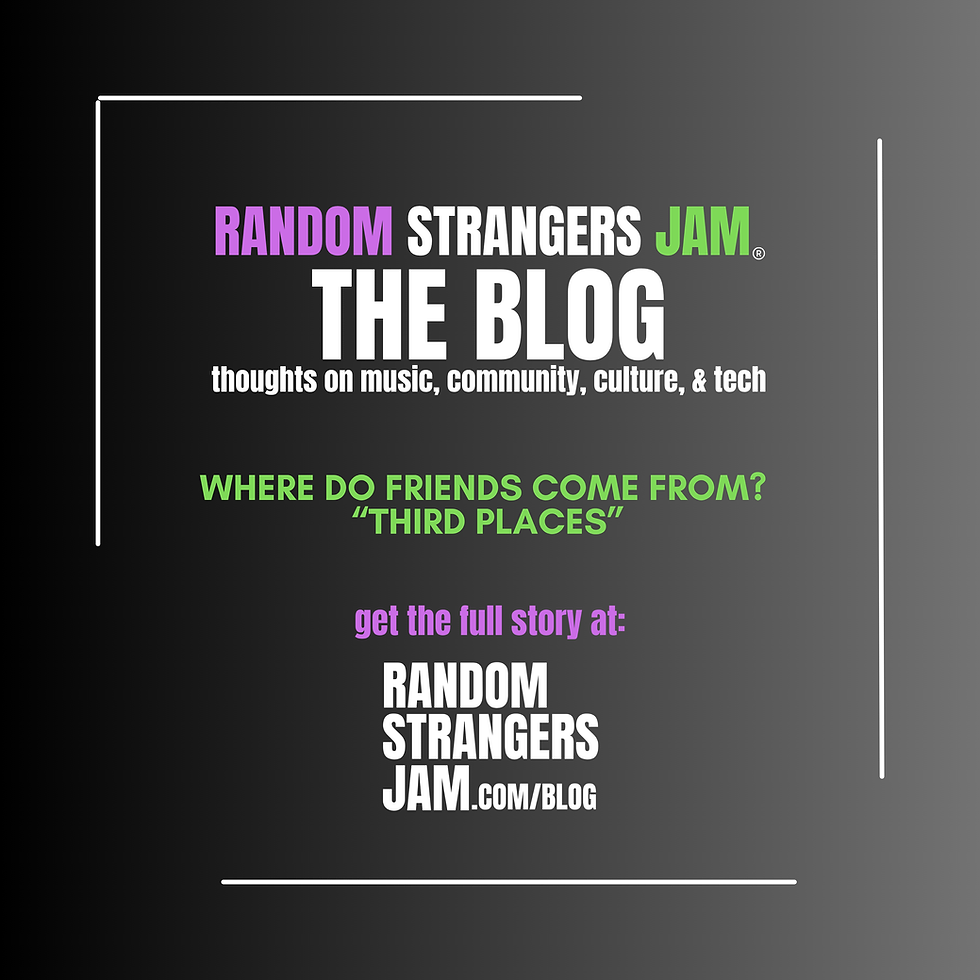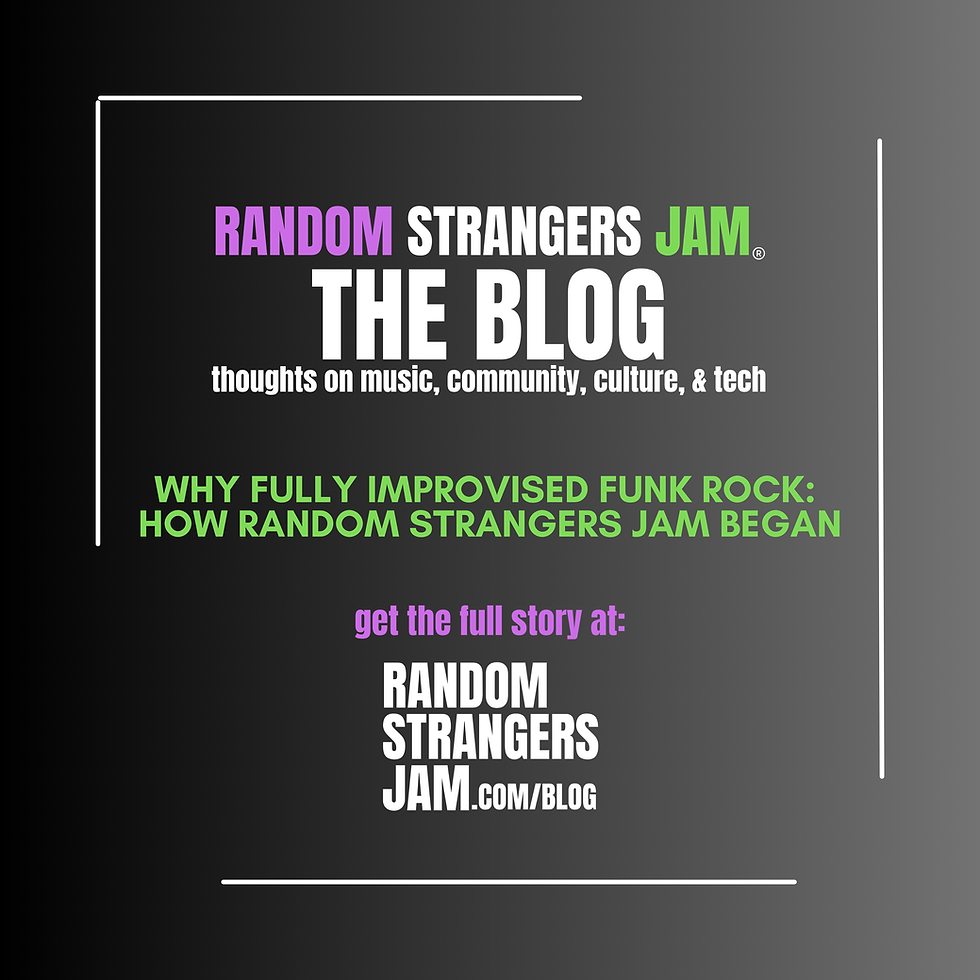Music is the Original Human Form of Self-Expression
- Sky Demetri

- Oct 8, 2025
- 3 min read
Music Before Language
I struggled to read in first grade. My reading ability was awful. Stuck on books with a pretty picture and 1-word per page - I was nearly guaranteed to be held back the year.
That was, until I started piano lessons. Then, everything changed.
As I learned to read the music notes and scales and rhythmic patterns, words on pages started to make sense. Hundred-page books were suddenly on the menu. It was like a light switch went off in my brain.
Back then, I didn't ask why. I was just thrilled to get to stay in the same grade as my friends.
At 33, I have had way more time to consider what happened in 1st grade and my belief is music is our most primal-yet-evolved form of language, which flows into answering another common question I receive around Random Strangers Jam:
How doesn't it turn into complete chaos when you put a bunch of random strangers together on stage?
Words are Limited
When we listen to a friend talk, they are using the agreed upon words that language dictates they can use to express what they are thinking and feeling. We are listening, but we are not hearing the raw expressions of ideas. We are hearing the ideas forcibly fit into the limited set of words we all agree mean the same thing.
Anger. Joy. Fear. Excitement. Sadness. Happiness.
New words must reach a certain level of collective understanding before truly taking on meaning. But even then, the way we all feel is different, we just agree to fit these personal feelings into the "box" of an agreed-upon word.
But expressing anger or joy or any other emotion started long before the dictionary had grown to be hundreds or thousands of pages of agreed upon words. Expression began with sounds, noises. In other words, communication began with abstract music. Infinite variations.
Humans have been expressing their emotions for thousands of years using their own individual instrumental, rhythmic and musical sounds. Drums marching into battle. War horns to bring together allied tribes and sow fear in the hearts of the enemy.
Music lacks a need for a collective agreement before new vocabulary is added. It can simply be felt. Since their creation, musical instruments and sounds have been as unique as their individual players yet still work together to communicate. Each generation of players has brought new techniques to these instruments and invented entirely new instruments - no collective agreement necessary.
Somehow. Almost like magic. These sounds blend and meld.
Feelings and emotions are conveyed. Abstract, highly personally expressive, yet collectively understood.
Raw Expression at Random Strangers Jam
When a group of random strangers jam on stage together, they are listening to the raw expressions - literal vibrations of energy from instruments chosen by the other human beings around them. There is no fitting into a box of pre-determined words. You get to share the sounds that flow from within. That primal place of raw feeling within each of us is given permission to exist. To make its own sound.
Every time a musician plays something original they created, they are giving you an energy map to a place in their soul where you can feel together without words.
There is an intense degree of needing to "be here, now." Truly in the moment. This listening also requires an intense vulnerability to really hear what the other musicians are trying to express and to let yourself go there too. To abstract away from all the structures forced on us, and instead to exist in a flow state with the feelings of other human beings.
This is why Random Strangers Jam works. We haven't invented anything new.
We just know and protect the fact improvised music is communication in its purest and most evolved form.






Comments